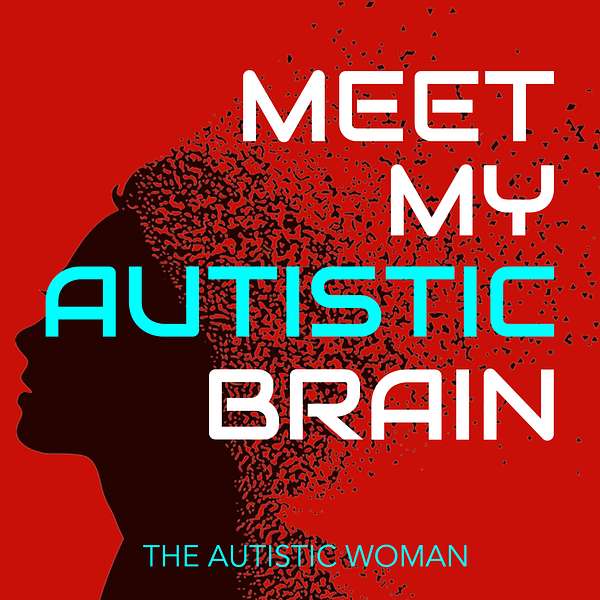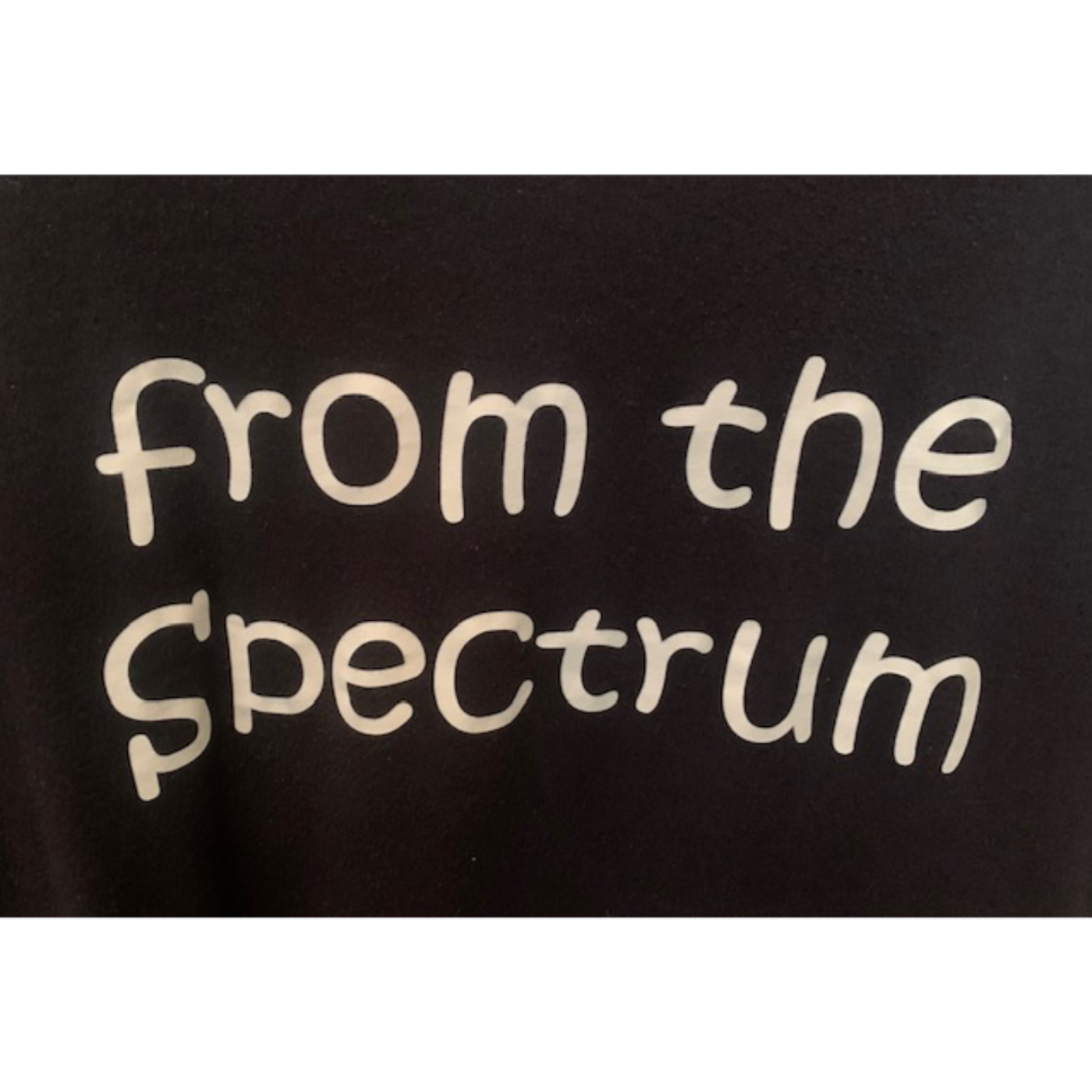
Meet My Autistic Brain
What is it like to find out late in life that you are autistic? The Autistic Woman talks about life experiences and how autistic traits affect her as an adult. You'll hear personal stories, opinions about research and the importance of autistic voices. Includes some fun stuff too and interviews of autistic guests! This podcast is primarily for adult autistics and their family and friends. It's one of the top 0.5% most popular shows globally as ranked by Listen Score with more than 1,000,000 downloads.
Meet My Autistic Brain
Proprioception
Proprioception is our ability to sense position, location and movement of our bodies. Many autistics may be under-responsive to this sense. Is that you? What does it look like?
Sunsama free trial: https://try.sunsama.com/xi4blkokndgk
RATED IN THE TOP 0.5% GLOBALLY with more than 1,000,000 downloads!
If you are an autistic person who has written a book about autism or if you have a guest suggestion email me at info@theautisticwoman.com.
Instagram
Ko-fi, PayPal, Patreon
Linktree
Email: info@theautisticwoman.com
Website
Proprioception
Close your eyes. Touch your nose with your index finger. How did you do? If you couldn’t do it, you may have a problem with proprioception. If you could do it, there may be other signs that you do have a proprioception disorder. I’ll talk about that in this episode.
Welcome to Meet My Autistic Brain. I’m your host, The Autistic Woman™. I discovered autism late in life and in this podcast I share my experiences and challenges so you can learn what it’s like to be autistic.
It’s been called the seventh sense. It tells us where our bodies are in relation to other objects and in open spaces, and how our different body parts are moving. It’s the body’s sense of position and joint position. It helps us have smooth and coordinated movements. Proprioception also tells us how much pressure to apply to a task or movement.
I relate to this because I have noticed that there are a few things I do that frustrate me and that I don’t always notice until something goes wrong. For example, I recently noticed that I lean on the cabinet doors when I open them and eventually it affects the hinges. I slam the refrigerator door shut without noticing it. I used to drive fast and then lean on the brakes at a red light until I had to have my brakes redone often and finally figured it out.
Can you balance on one leg? That and the finger to nose test happen to be two an officer might ask you to do if you are stopped for DUI. A person might also be asked to walk an imaginary line with arms extended placing one foot in front of the other with feet touching. Can you imagine? An autistic person who’s sober would have trouble with them.
Sometimes my feet seem to be pushing against the ground. By that I mean it feels like I am heavier than I am or that I am actually exerting force on the ground as if I’m pushing on it. How could that be? Maybe it’s my leg muscles tensing up and just feels like that.
Most of us are familiar with how an under-active proprioceptive sense plays out: We bump into counter tops. Our shoulder might hit a wall as we pass through a doorway because proprioception helps us measure distances. People tell us we walk funny.
Many autistic bodies don’t sense the position, location, orientation, and movement of the body muscles and joints in the same way that non-autistic people’s do.
Proprioception relies on signals from neurons in the inner ear and receptors in our muscles and ligaments. Proprioception issues contribute to sensory processing disorder. When a non-autistic person is tired they may have problems with proprioception. Whether an autistic person is tired or not they struggle. Tiredness makes it worse.
The body’s sense of position is crucial to have smooth and coordinated movement. It helps us judge the distance something is from us, like when we put something on the coffee table and then reach for it later.
It judges how much pressure to use when we’re writing. When I was a child I held my pen or pencil so tightly that it caused a permanent deformity in my finger.
Autistic people experience varying differences related to this sense. I had a friend who must have been very uncoordinated although it didn’t seem noticeable to me. Instead, I saw that he would walk into a room and maybe only be there for a few minutes and when he left something would be broken.
I had another friend who always spilled his glass of milk when he was a kid. Every time. Without fail. No matter how much he paid attention or was reminded by his parents. They finally told him they would give him a reward if he didn’t spill his milk but it didn’t matter. He couldn’t control it. That’s basically how problems with proprioception are.
Deep pressure such as tight bear hugs, tight clothing or heavy blankets may feel good to people whose proprioception is under-responsive. They’re more likely to be sensory-seeking. They may stim to help satisfy the need for sensory input.
Those whose sense is over-responsive are more likely to dislike hugs or being touched, write with a light pressure and have poor posture. They may be considered lazy. They are sensory-avoidant.
A seeking person may love deep tissue massage whereas a sensory avoidant person will not like them. A seeker may be constantly moving. An avoidant may sit quietly and still.
Proprioception issues are why people have difficulty learning new movements. I have always been bad at sports and I enjoy them anyway. As a kid I was the last one picked on a team and I get it. Enthusiasm was secondary to ability.
A person may be sensitive to certain proprioceptive inputs while craving others. Some autistics dislike weighted blankets but love compression socks.
Here are some proprioceptive inputs for the under-responsive senses: lifting weights, push-ups, yard work, swinging, jumping, bouncing, using weighted blankets, chewy necklaces.
The same kind of input for people with over-responsive senses may be too stimulating. It’s okay to sit quietly and limit activities that involve touch. It’s okay for them to avoid handshakes or just barely touch which can be challenging in a world where the pressure of a handshake is supposedly a measure of confidence.
Proprioceptive differences cannot be healed or changed or whatever else you want to call it. I’ve become more aware of mine now. I always hold a handrail when I walk down stairs, just in case. I’ve trained my brain to notice my coffee table and avoid it so that I don’t bump into it as often. But I still occasionally close a drawer with my fingers still in it. No matter how hard I try I can’t seem to walk down a sidewalk in a straight line. I no longer carry ten bags of groceries into the house at the same time.
Because of proprioceptive deficits I sprained my ankle on the first day of gym class. I drop things constantly. When I open a bottle of small things, like vitamins, I know some will end up on the floor. And of course, I’ll never see them again because once on the floor they disappear into some kind of black hole. For me riding a bike is easier than walking. I’m okay that I’ll never be a good skater or juggler.
There are some good things too.
I will always love how it feels to swing and the happiness I get from dancing.
Listen to other episodes to learn more about how the autistic brain works. Reach out to me by email at info@theautisticwoman.com.
You can support the podcast by using the links in the show notes and by rating it 5 stars wherever you listen.
You make the podcast possible and I appreciate being able to do what I love doing.
Finally, tell your family and friends about the podcast so others can learn what it’s like to be autistic.
This has been Meet My Autistic Brain. I’m the Autistic Woman. Slava Ukraine.
Podcasts we love
Check out these other fine podcasts recommended by us, not an algorithm.

Atypical: The Podcast
The Atypical Crew

